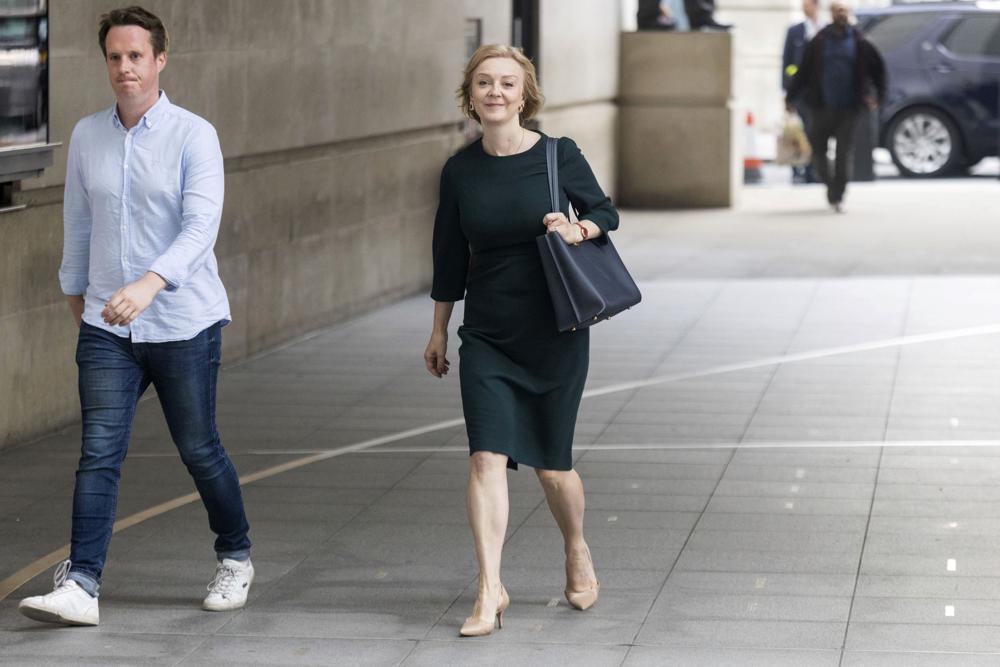
Britain’s new Conservative leader Liz Truss Monday vowed "bold" action to confront a biting economic crisis as she was confirmed as successor to Prime Minister Boris Johnson after a gruelling party contest.
The foreign secretary also resisted pressure for a politically perilous early election to confirm her new mandate, vowing to "deliver a great victory for the Conservative party in 2024".
Truss beat her rival, former finance minister Rishi Sunak, by about 57 to 43 percent after a summer-long contest decided by just over 170,000 Conservative members -- a tiny sliver of Britain’s electorate.
Truss ignored the applauding Sunak as she marched up to the stage of the central London convention hall, calling it an "honour" to be elected after undergoing "one of the longest job interviews in history".
"I campaigned as a conservative, and I will govern as a conservative," she said, touting Tory values of low taxes and personal responsibility.
Truss vowed a "bold plan" to address tax cuts and the energy crisis. Details are expected in the coming days.
Truss, 47, will be only the UK’s third female prime minister following Theresa May and Margaret Thatcher.
She will formally take office on Tuesday, after Johnson tenders his resignation to Queen Elizabeth II.
"I know she has the right plan to tackle the cost-of-living crisis, unite our party and continue the great work of uniting and levelling up our country," Johnson tweeted.
"Now is the time for all Conservatives to get behind her 100 per cent."
The leadership contest began in July after Johnson announced his departure following a slew of scandals and resignations from his government, including Sunak’s.
Truss reserved a portion of her short speech to praising Johnson’s record, including on Brexit and the Covid pandemic, and said he was "admired from Kiev to Carlisle".
That won warm applause from the Tory faithful present. However, the right-wing ideologue faces a tough task in winning over public opinion.
A YouGov poll in late August found 52 percent thought Truss would make a "poor" or "terrible" prime minister.
Forty-three percent said they did not trust her "at all" to deal with the burning issue of the rise in the cost of living, as energy prices and inflation generally rocket amid Russia’s war in Ukraine.
The Tory winner faces "the worst in-tray for a new prime minister since Thatcher", The Sunday Times wrote.
Millions say that with energy bills set to rise by 80 percent from October -- and even higher from January -- they face a painful choice between eating and heating this winter, according to surveys.
The Times and Daily Telegraph newspapers reported Monday that Truss was considering freezing energy bills for consumers, with the government reimbursing suppliers.
But polls show public support for an early general election, and the Conservatives face a growing challenge to retain their grip on power with the opposition Labour party riding high.
Labour leader Keir Starmer sent his own congratulations to Truss.
"But after 12 years of the Tories all we have to show for it is low wages, high prices, and a Tory cost-of-living crisis," he tweeted.
"Only Labour can deliver the fresh start our country needs."
Truss became foreign minister a year ago after holding a series of ministerial posts in departments including education, international trade and justice.
She began her political journey as a teenage member of the centrist Liberal Democrats before switching to the Conservatives.
In 2016, she campaigned for the UK to remain in the European Union but switched allegiance when Britons backed Brexit.
Her love of photo opportunities and style of dress -- posing in a tank in Estonia and wearing a fur hat in Moscow -- have earned her comparisons to Tory icon Thatcher.
Monday’s announcement by Conservative officials set in motion a carefully choreographed chain of events.
For the first time in her 70-year reign, the 96-year-old monarch will appoint the prime minister at her Scottish retreat, Balmoral, rather than at Buckingham Palace in London.
The queen has been suffering mobility problems, and has cancelled a number of public engagements.
On Tuesday morning, Johnson will deliver a farewell speech at Downing Street before flying to Scotland -- where heavy rain is forecast -- to hand his resignation to the queen.
Truss is expected to fly separately to accept the queen’s invitation to form a new government, to ensure continuity of government in case of any mishaps.
On her return to Downing Street, the new prime minister will then give a short address to the nation. By tradition, that happens on the steps of Number 10.
But it may have to be moved indoors with forecasts for thundery downpours, matching Britain’s dismal outlook as the Truss government starts life.